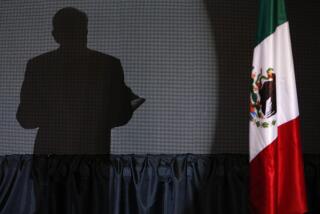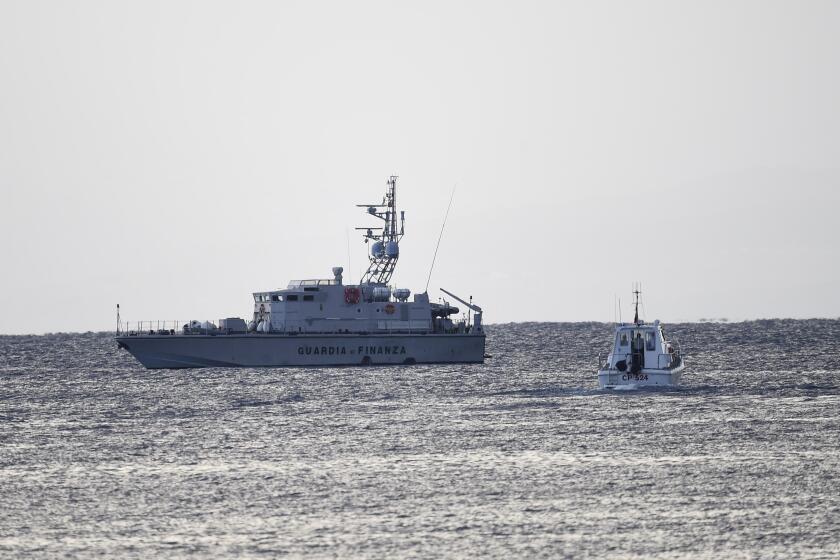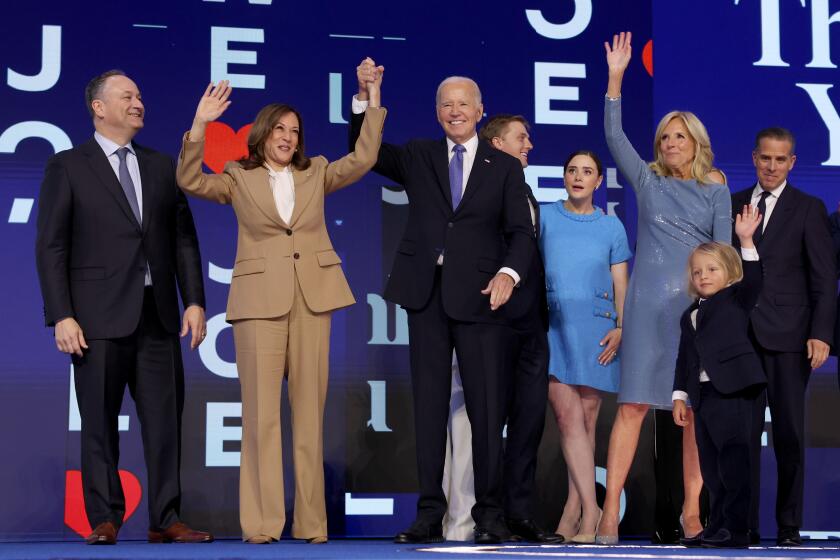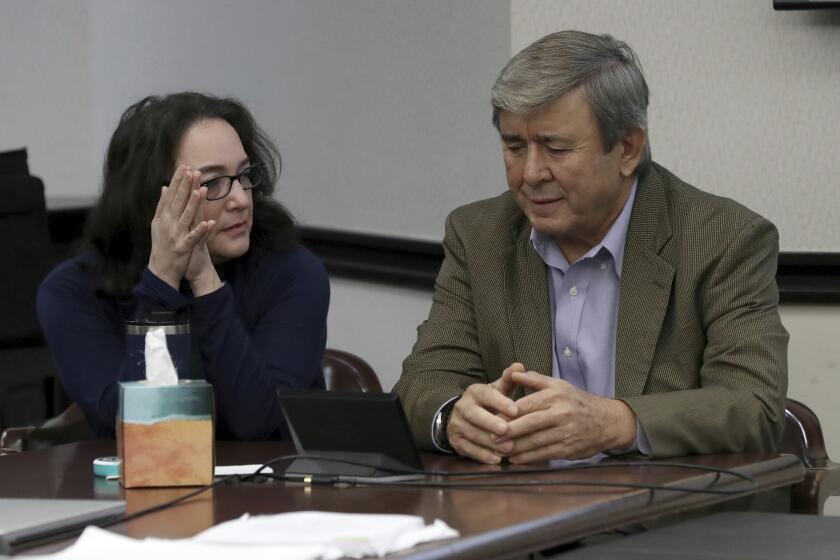KGB’s Top Spy in London Defects; 25 Soviets Ousted : Expulsion Largest Since 1971
The chief of the Soviet KGB spy operation in London defected to the West and exposed a major espionage network, prompting Britain to expel 25 Soviets in the largest spy ouster in more than a decade, the government announced today.
The British government gave the alleged spies, who included diplomats, journalists, translators and a chauffeur, three weeks to get out of the country.
In Washington, the defection of Oleg Gordievski, 46, was hailed as the most important since that of Arkady Shevchenko, who defected from his position as undersecretary at the United Nations in 1978. Shevchenko is now a consultant for the CIA.
The Soviet Embassy in London had no comment on Gordievski’s defection, but condemned as “unwarranted” and “unfriendly” the order expelling the 25 Soviets.
The Foreign Office said Gordievski officially had been a counselor at the Soviet Embassy since June, 1982, but in reality was the chief of the KGB espionage operation in Britain. It said he joined the KGB in 1962 and had “recently become head of the KGB residency in London.”
In Washington, former CIA Deputy Director Ray Cline called the defection “a great break” for the West at a critical time in fathoming Moscow’s intentions before the forthcoming U.S.-Soviet summit in Geneva in November.
‘How Valuable It Is’
“Most people don’t realize how valuable it is when we get a defection like this,” Cline said. “He can tell you things (about) how the system works that confirm other data and research and analysis that we do which require confirmation from inside sources.”
“It is a credit to the (Prime Minister Margaret) Thatcher government that they were able to bring off such a high-level defection,” Cline said.
Officials refused to say when Gordievski defected or divulge where he is in Britain. He was believed to be under tight security.
The Soviet charge d’affaires, Lev Parchine, was called to the Foreign Office and informed that Gordievski “had sought and been granted asylum in this country.”
“Mr. Gordievski was in a position to know full details of Soviet intelligence activities and personnel in this country,” the Foreign Office said.
“Mr. Parchine was told that a significant number of Soviet representatives in London have been engaged in intelligence activities, which were of course totally incompatible with their status and their declared tasks.”
3 First Secretaries
“The Soviet charge was therefore informed that 25 Soviet officials, of whom six belong to the diplomatic staff, must leave within three weeks,” the statement said. The six diplomats include three embassy first secretaries.
The other 19 include seven trade mission representatives, five journalists, two translators for international commodities organizations, a Soviet bank official, a trading company director and a guard, a chauffeur and a maintenance worker from the embassy.
The expulsion is the biggest by Britain since 1971, when 105 alleged Soviet spies were ordered out of the country after the defection of KGB Maj. Oleg Lyalin, who has been sentenced to death in absentia by a court in Moscow.
London said it hopes that the action will not adversely affect relations with Moscow.
“It was accordingly made clear that although our action was necessary in the interests of national security, it remained our policy to work for an improvement in bilateral relations with the Soviet Union,” the Foreign Office said.
But the Soviet Embassy said in a statement released shortly after Britain’s announcement that the action “is without any foundation whatsoever, especially as it is justified by the references to the allegations of a defector.”
More to Read
Sign up for Essential California
The most important California stories and recommendations in your inbox every morning.
You may occasionally receive promotional content from the Los Angeles Times.






